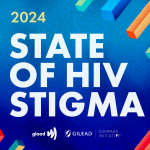Bristol-Myers Squibb and Gilead Sciences announced on July 12 that they have received U.S. Food and Drug Administration (FDA) clearance to begin selling Atripla™ (pronounced “uh-TRIP-luh”), their long-awaited fixed-dose combination tablet containing Sustiva® (efavirenz) and Truvada® (tenofovir and emtricitabine). Atripla is the first complete one-pill, once-daily anti-HIV drug regimen to be approved by the FDA.
“The availability of Atripla marks the culmination of ten years of efforts to simplify dosing while helping to achieve and maintain effective viral suppression for adults infected with HIV,” said Dr. John G. Bartlett of Johns Hopkins University.
The development and approval of Atripla illustrates the good that can come from two major pharmaceutical companies working together to achieve a similar goal. The collaboration between Bristol-Myers Squibb and Gilead, which began in December 2004, is the first HIV drug collaboration of its kind in the 25 year history of the AIDS epidemic.
“The partnership between Gilead and BMS in co-formulating these drugs provides the opportunity to reach the long-sought goal of managing HIV infection with one pill, once a day,” said Dr. Anthony S. Fauci, Director of the National Institute of Allergy and Infectious Diseases (NIAID). “This particular single pill regimen is expected to both increase adherence and extend clinical benefit for those infected with HIV.”
“This is a neat technical accomplishment,” said Mark Harrington, Executive Director of the Treatment Action Group (TAG). However, he said, the need for simplified treatment regimens extends far beyond the borders of the United States. “Bristol-Myers Squibb and Gilead need to team up to overcome the legal, regulatory, and logistical obstacles which have impeded Gilead from making an effective dent in the global pandemic. This means providing the new combo at the lowest possible price everywhere in the developing world.”
On June 30, the FDA granted approval to another three-drug tablet containing generic versions of Viramune® (nevirapine), Retrovir® (zidovudine), and Epivir® (lamivudine). The twice-daily tablets, manufactured by Aurobindo Pharma Ltd. in Hyderabad, India, will be available for purchase and distribution in 15 resource-poor countries receiving funds and assistance from the the President’s Emergency Plan for AIDS Relief (PEPFAR). With its FDA approval, Atripla also qualifies for purchase under PEPFAR.
The Atripla tablets each contain 600mg of efavirenz, a non-nucleoside reverse transcriptase inhibitor (NNRTI), 200mg of emtricitabine and 300mg of tenofovir disoproxil fumarate, both nucleoside reverse transcriptase inhibitors (NRTIs). The recommended Atripla dose is one tablet, once a day. It should be taken without food, preferably at bedtime.
Guidelines issued by the U.S. Department of Health and Human Services (DHHS) list efavirenz, emtricitabine and tenofovir among the preferred agents for use in an NNRTI-based treatment regimen in appropriate patients who have not taken anti-HIV drugs in the past.
Atripla (or Sustiva) should not be used during the first trimester of pregnancy due to the potential harm to the fetus. Pregnancy should be avoided by women receiving these medications.
While the availability of Atripla will likely be greeted with much enthusiasm by those currently taking Sustiva plus Truvada – or those considering this regimen in the future – Harrington stressed that one-pill, once-daily treatment is not a panacea. “Regardless of how antiretroviral treatment is taken and in how many pills, it still requires extremely high adherence to succeed, avoid resistance, and control viral load.” He added that while the availability of Atripla – and other fixed-dose combination pills – does not remove these difficulties, it does ease them.







Comments
Comments